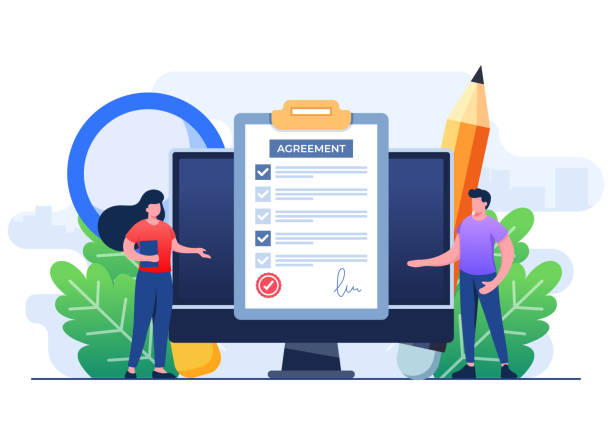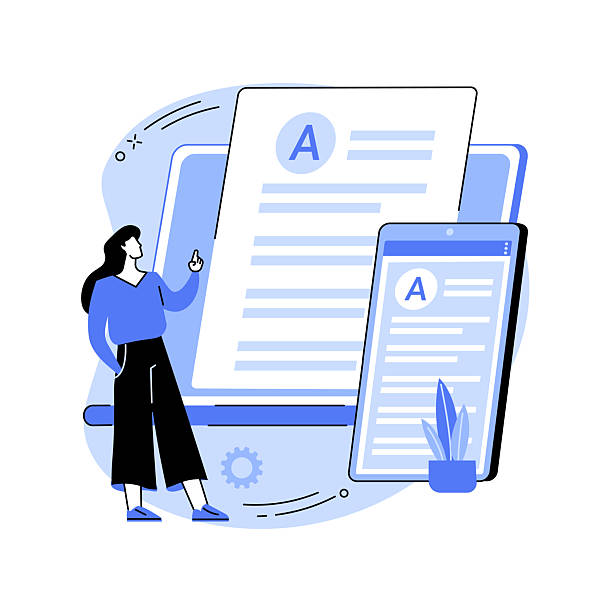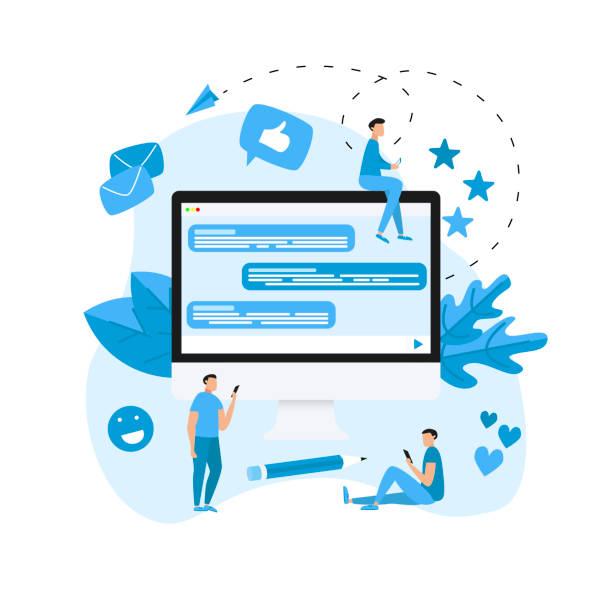Why Does Every Person Need a Personal Website?
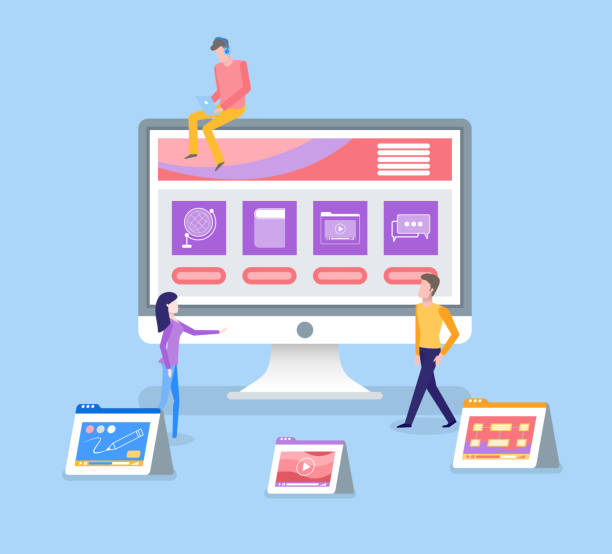
In today’s digital world, an online presence is not just an advantage, but a necessity.
Designing a personal website is a powerful tool for building and strengthening your #personal_brand.
This platform allows you to showcase your skills, experiences, and achievements in a professional and organized manner.
It doesn’t matter if you’re an artist, writer, engineer, or consultant; having a dedicated website gives you the opportunity to have complete control over your narrative.
You no longer need to be limited by social media platforms whose algorithms dictate who sees what.
Your website is your digital home.
Many individuals use a personal website to display their portfolio, resume, or work samples.
This approach not only increases your credibility, but also allows employers, potential clients, or colleagues to easily get to know you and assess your abilities.
Did you know that 90% of recruiters check applicants’ online profiles before an interview? A high-quality personal website can distinguish you from competitors and demonstrate your seriousness and professionalism.
It is not only a descriptive tool but can also generate thought-provoking content that invites visitors to engage and explore further.
Furthermore, you can use it to share your knowledge and expertise through blogging, which ultimately solidifies your position as an expert in your field.
Do you have an online store, but your sales aren’t as expected? RasaWeb solves your problem forever with professional e-commerce website design!
✅ Significant increase in conversion rates and sales
✅ Unparalleled user experience for your customers
⚡ Click here to get free consultation from RasaWeb!
First Steps in Personal Website Design: Domain and Hosting
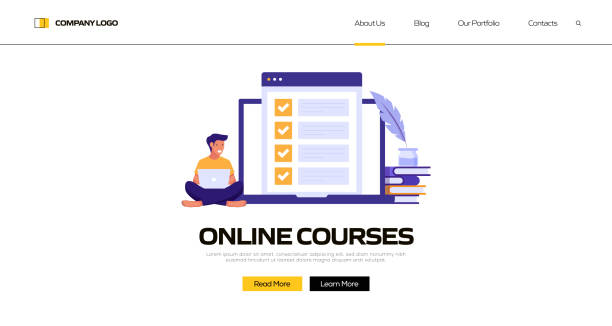
After deciding to design a personal website, the first practical steps involve choosing and registering a domain and acquiring hosting service.
The domain is your website’s address on the internet, such as “yourname.com”.
Choosing a suitable domain name that is memorable and relevant to your personal or professional identity is crucial.
This choice is part of your online branding and should be made carefully.
Try to choose a name that is short, easy to pronounce, and preferably includes your name or field of activity.
Domain extensions like .com, .net, or .org are usually more popular, but newer extensions such as .me or .pro can also be suitable for personal websites.
Hosting is the space where your website’s files (text, images, videos, and code) are stored and are always accessible to internet users.
There are various hosting providers with different plans and prices.
For a personal website, quality shared hosting is usually sufficient.
When choosing hosting, pay attention to factors such as site loading speed, uptime (availability), technical support, and security.
Many hosting companies also offer domain registration services along with hosting packages.
This stage is an important educational step that forms the foundation of your online presence and is crucial for anyone planning to launch a website.
Choosing the Right Platform for Your Website
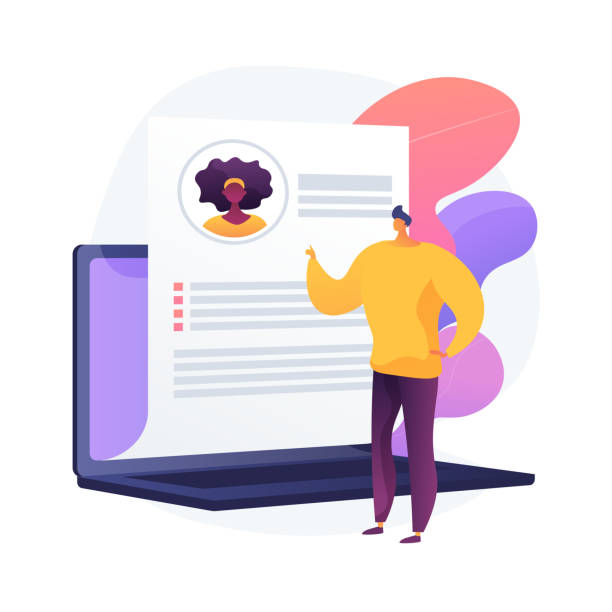
After acquiring a domain and hosting, the next step in personal website design is choosing the right platform or Content Management System (CMS).
This choice will significantly impact the design process, features, and ease of managing your website in the future.
There are various platforms with different features and levels of complexity, each with its own advantages and disadvantages.
WordPress, as the world’s most popular CMS, is a powerful and flexible choice for personal websites.
This platform has thousands of free and paid themes and plugins that allow you to create almost any type of website without extensive programming knowledge.
Other platforms like Wix and Squarespace are also good options, especially if you are looking for a drag-and-drop solution without the need for separate hosting.
These platforms are usually much more user-friendly for non-technical individuals, but they may have limitations in terms of flexibility and full code control.
The choice of platform depends on your goals, technical knowledge, and budget.
This specialized section requires careful consideration.
A small comparison can help you decide:
| Feature | WordPress (Self-hosted) | Wix | Squarespace |
|---|---|---|---|
| Ease of Use | Moderate (Requires learning) | Very High (Drag-and-drop) | High (Drag-and-drop) |
| Flexibility and Customization | Very High (Plugins and code) | Moderate (Limited to internal tools) | Moderate (Limited to templates and tools) |
| Cost | Moderate (Hosting, domain, theme/plugin) | Moderate to High (Subscription-based) | Moderate to High (Subscription-based) |
| Full Control | Complete (Code access) | Limited | Limited |
Choosing the right platform can significantly smooth the path for your website’s development and maintenance.
The Importance of User Interface and User Experience Design (UI/UX)
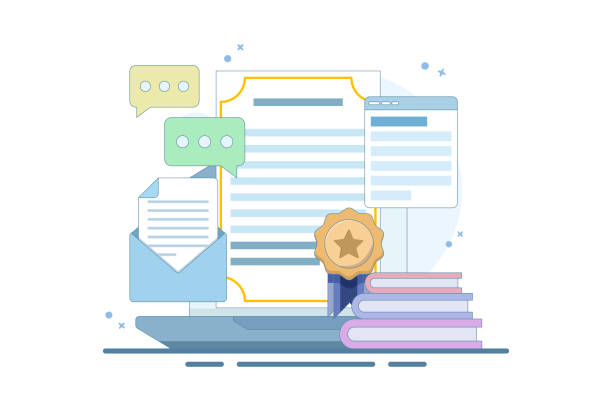
After choosing a platform, one of the most important aspects of personal website design is paying attention to User Interface (UI) and User Experience (UX) design.
These two concepts together ensure that your website not only looks beautiful but is also efficient and user-friendly.
A good UI means an attractive appearance, suitable colors, readable fonts, and a pleasant visual layout.
This is the first thing a visitor sees and makes the initial impression.
But UX goes beyond appearance; it means how easily and enjoyably users can interact with your website.
Is information easy to find? Are forms simple to fill out? Is the navigation (menus) logical?
A poor user experience can quickly drive visitors away from your website, even if your content is valuable.
Optimizing UX includes factors such as page loading speed, responsive design for correct display on all devices, logical content structure, and clear calls to action.
For example, if you want visitors to hire you, there should be a clear way for them to contact you or view your resume.
This is a specialized and analytical part of the design process that must be carefully considered so that your website becomes an effective tool for achieving your goals.
Successful UI/UX design can transform your personal website into a powerful and influential communication tool.
Research shows that 80% of customers trust companies with professional websites more. Does your current website inspire this trust?
With RasaWeb’s corporate website design services, solve the problem of customer mistrust and poor online image forever!
✅ Create a professional image and increase customer trust
✅ Attract more sales leads and grow your business
⚡ Get free consultation
What is the Content of Your Personal Website?
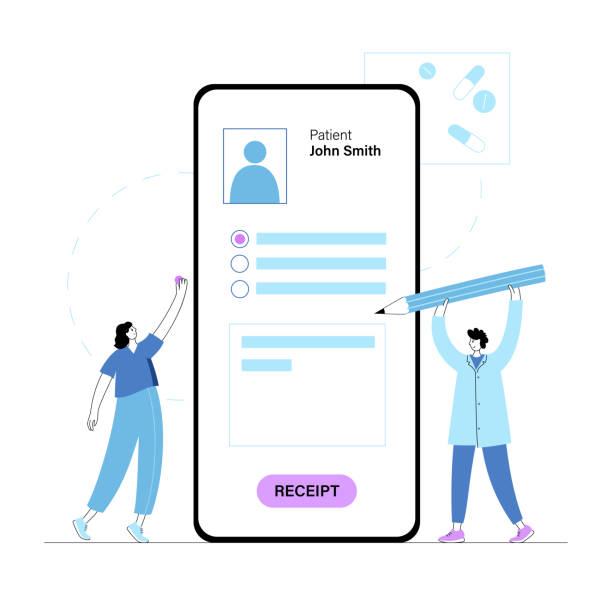
After implementing the infrastructure and visual design, it’s time for the most important part: content.
Content is the beating heart of any website, and in the case of personal website design, this becomes doubly important.
Your content should reflect your identity, expertise, and goals.
To begin, create a comprehensive and engaging «About Me» page.
This page is an opportunity to introduce yourself, your story, and the values you believe in.
You can use a warm and personal tone to establish a deeper connection with visitors.
The next section is your portfolio or work samples.
If you are an artist, designer, writer, developer, or any professional involved in projects, showcasing your best work is essential.
Present each project with a brief description, high-quality images, and even the achieved results.
This section serves as a powerful visual resume.
Additionally, you can create a blog section.
Blogging is an excellent way to share your expertise, personal opinions on the industry, or even entertaining experiences.
This educational and guiding content can establish you as an authority in your field and attract organic traffic to your website.
Remember that content should always be up-to-date and regularly reviewed to remain fresh and relevant.
Search Engine Optimization (SEO) for Your Personal Website
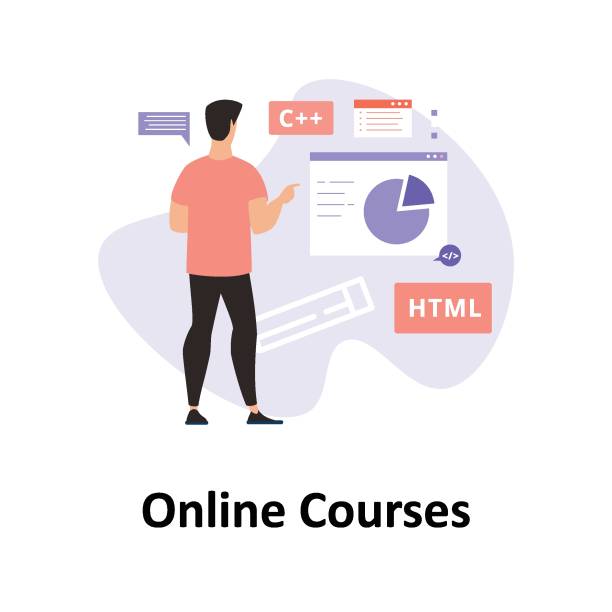
After designing your personal website and uploading content, the next crucial step is optimizing it for search engines (SEO).
SEO is a set of techniques that helps your website achieve a higher ranking in Google and other search engine results, allowing more people to find it.
For personal websites, SEO plays a significant role in increasing visibility and attracting new opportunities.
Starting with relevant keywords for your field of activity is essential.
Research what phrases your target audience searches for to find your services or expertise, and naturally incorporate these keywords into your titles, meta descriptions, and content text.
Technical SEO aspects such as site loading speed, mobile compatibility (responsiveness), and URL structure are also very important.
Ensure that your website loads quickly and displays correctly on all devices.
Using sitemaps and robots.txt files also helps search engines crawl and index your website better.
Building quality backlinks from other websites (external link building) also increases your website’s authority in the eyes of search engines.
Remember that SEO is an ongoing process and requires regular monitoring and updating to maintain desired results.
This is a specialized and analytical section that can guarantee your website’s success.
Personal Website Security and Maintenance
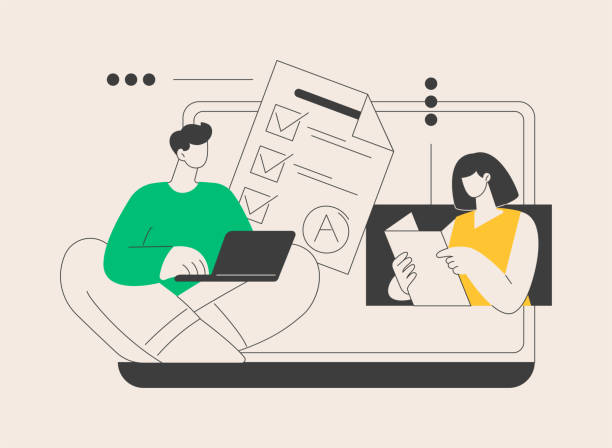
One of the often-overlooked aspects of personal website design is its security and regular maintenance.
Once launched, your website is not left to fend for itself.
Like a house, it needs care and periodic inspections to protect it from potential damage and threats and to ensure it functions correctly.
Cyberattacks, malware, and security flaws can lead to data loss, decreased search engine rankings, and even damage to your reputation.
Using an SSL certificate (which starts your website’s address with HTTPS) for data encryption and creating a secure connection is the first and most fundamental step.
Regular backups of website data are a vital solution for combating data loss.
This can be done automatically by your hosting company, or you can use dedicated plugins and tools.
Regular updates of the platform (like WordPress), themes, and plugins are also essential to fix security vulnerabilities and benefit from the latest features.
Monitoring site performance, checking for broken links, and optimizing the database are also part of routine maintenance.
This is a specialized and informative section that you should never overlook.
Here is a website maintenance guide table:
| Activity | Frequency | Description |
|---|---|---|
| Full Backup | Weekly/Monthly | Save a complete copy of the database and files |
| Update Platform and Plugins | Weekly/Bi-weekly | Ensure latest versions for security and performance |
| Check Broken Links | Monthly | Remove or fix links pointing to non-existent pages |
| Optimize Database | Quarterly | Remove unnecessary data and improve speed |
| Security Scan | Monthly | Scan for malware and vulnerabilities |
By following these tips, you can ensure the stability and security of your personal website.
Personal Website Responsiveness Across Different Devices
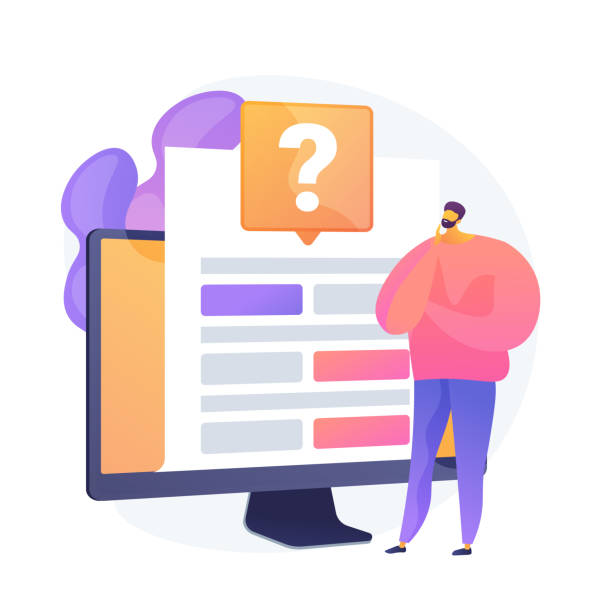
In the current era, where smartphones and tablets have become an indispensable part of our daily lives, ensuring your personal website’s responsiveness is an absolute necessity.
Responsive design means that your website displays correctly and provides a consistent user experience regardless of the screen size of the device the user is using (desktop computer, laptop, tablet, mobile).
Lack of responsiveness can lead to a loss of visitors, as many users are unwilling to view a website that does not display correctly.
The importance of responsiveness is not limited to user experience alone.
Search engines like Google also give higher priority to responsive websites in search results.
This means that if your website is not optimized for mobile, its search ranking may decrease.
When designing a personal website, make sure that the theme or builder tool you use is responsive by default.
After launch, test your website on various devices to ensure its correct display.
This is a specialized and explanatory aspect of web design that is crucial not only for aesthetics but also for your site’s performance and SEO.
This action not only improves the user experience but also enhances your credibility as someone knowledgeable about web standards.
Do you dream of a thriving online store but don’t know where to start?
RasaWeb is your comprehensive e-commerce website design solution.
✅ Attractive and user-friendly design
✅ Increase sales and revenue⚡ Get free consultation
Promoting and Marketing Your Personal Website
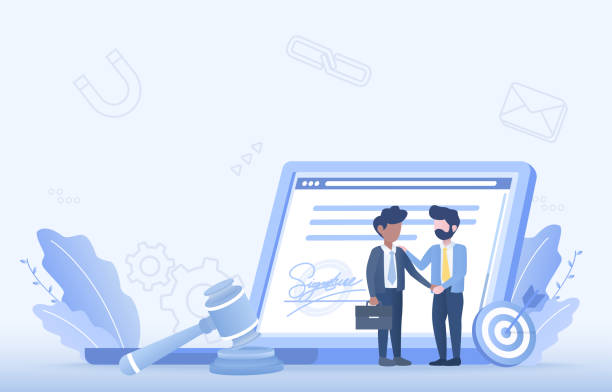
Designing a personal website is only half the battle; the other half is ensuring it gets seen.
Even the best website will be ineffective without visitors.
Therefore, promoting and marketing your personal website is the next essential step.
The first step is sharing your website address on all your social profiles (LinkedIn, Twitter, Instagram, Facebook, etc.).
Include your website link in your email signature and use it in all professional correspondence.
This is an easy and free way to increase visibility.
Content marketing through blogging or creating video content related to your expertise can drive organic traffic to your site.
Remember that high-quality and valuable content encourages users to return and share your materials.
Participating in online forums and specialized groups related to your field, answering questions, and providing expert opinions can establish you as a specialist and indirectly promote your website.
You can also use paid advertising like Google Ads or social media ads to increase visibility faster, although for personal websites with limited budgets, organic and free methods are more effective.
This is an entertaining yet practical guide for greater visibility.
The Future of Personal Websites and New Trends
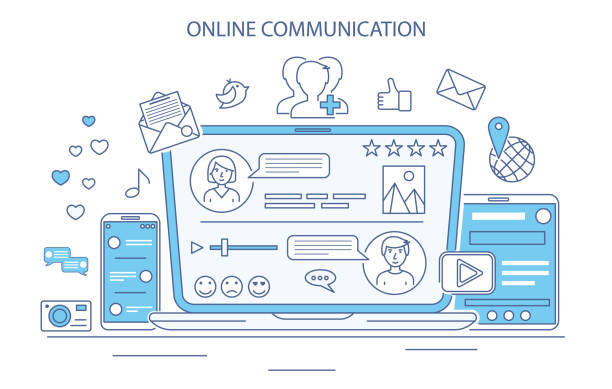
Personal website design is not a static concept; it is constantly evolving.
With technological advancements, new trends are emerging that can improve user experience and create new interaction opportunities.
One such trend is Artificial Intelligence (AI) and Machine Learning (ML), which are gradually being integrated into website design and user interaction.
From smart chatbots for answering visitor questions to personalizing content based on user behavior, AI can make your website smarter and more efficient.
Augmented Reality (AR) and Virtual Reality (VR) also hold significant potential for personal websites, especially for designers, artists, and architects, to showcase their portfolios in a more immersive and engaging way.
Podcasts and audio content are also growing, and your personal website can become a platform for hosting this type of content.
Additionally, with increasing public awareness regarding privacy and data security, personal websites must pay more attention to these issues and provide necessary transparency regarding the collection and use of user information.
This is an analytical and informative section that helps you stay at the forefront of web technologies and prepare your personal website for the future.
Keeping pace with these trends can keep your website relevant and impactful for years to come.
Frequently Asked Questions
| No. | Question | Answer |
|---|---|---|
| 1 | Why should we have a personal website? | A personal website allows you to professionally showcase your resume, portfolio, experiences, and views, strengthening your personal brand. This helps increase career and networking opportunities. |
| 2 | What content should we include on a personal website? | It typically includes sections like “About Me”, “Resume” (skills and experiences), “Portfolio” (projects and achievements), “Blog” (articles and insights), and “Contact Me”. The content should be consistent with your website’s purpose. |
| 3 | What is the best platform for building a personal website? | WordPress is a very popular choice due to its high flexibility, numerous themes and plugins, and large user community. Platforms like Wix and Squarespace are also suitable for beginners. |
| 4 | What points should be considered in personal website design? | Responsive design for correct display on mobile and tablet, high loading speed, a simple and attractive User Interface (UI) and User Experience (UX), and Search Engine Optimization (SEO) are key points. |
| 5 | How to choose a suitable domain name for a personal website? | It is best for the domain name to be simple, short, memorable, and relevant to your name or personal brand. Using common extensions like .com, .net, or .ir is recommended. |
| 6 | What is the importance of the Portfolio section on a personal website? | The portfolio section is the most powerful tool for showcasing your skills and completed projects. This section helps potential employers or clients tangibly see your abilities and have more trust in you. |
| 7 | Is adding a blog section to a personal website useful? | Yes, a blog allows you to share your expertise through articles and writings, interact with your audience, and improve your site’s ranking in search engines by producing fresh content. |
| 8 | How can a personal website be made to look professional? | Using a clean and modern design, a high-quality and professional profile picture, writing content without spelling or grammatical errors, and ensuring all links and forms function correctly greatly contribute to the website’s professionalism. |
| 9 | What does personal website maintenance and updating include? | Regular content updates, checking links and forms functionality, regular data backups, and updating the Content Management System (like WordPress) and plugins are essential for maintaining security and proper operation. |
| 10 | How much does it cost to design and maintain a personal website? | The cost can vary. It includes domain purchase (around $15-50 per year) and hosting (around $50-200 per year). Using free themes or paying for premium themes and plugins also affects the overall cost. |
And other services by RasaWeb Advertising Agency in the field of advertising:
Smart Custom Software: A fast and efficient solution for user interaction with a focus on marketing automation.
Smart Conversion Rate Optimization: An innovative platform for improving sales increase with intelligent data analysis.
Smart Sales Automation: A fast and efficient solution for user interaction focusing on attractive UI design.
Smart Brand Identity: Professional optimization for customer behavior analysis using SEO-driven content strategy.
Smart Social Media: A fast and efficient solution for user interaction focusing on precise audience targeting.
And over a hundred other services in internet advertising, advertising consultation, and organizational solutions.
Internet Advertising | Advertising Strategy | Advertorials
Sources
Personal Website Design Tutorial
Complete Website Design Guide
Key Tips for Personal Website Design
Web Design Articles and News
? Ready to transform your business in the digital world? RasaWeb Afarin, with expertise in secure website design, professional SEO, and content marketing, paves your path to success and visibility. With us, secure the future of your online business.
📍 Tehran, Mirdamad Street, next to Central Bank, Southern Kazeroun Alley, Ramin Alley, No. 6


